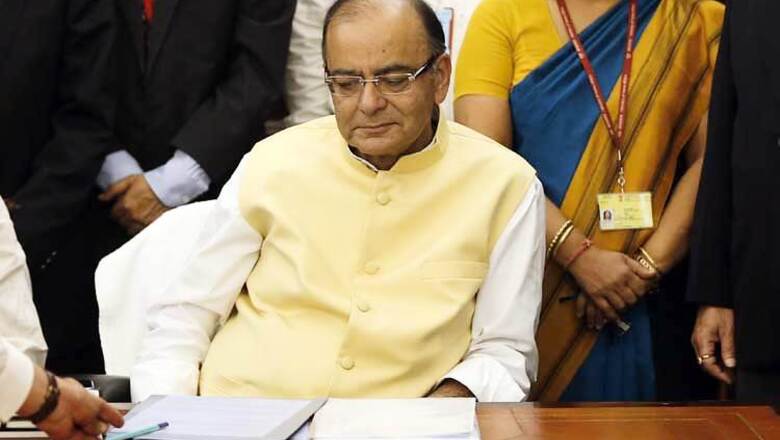
views
New York: "Excessive interference" by the judiciary in commercial arbitration is not good for the investor because it adds costs to Indian companies and the cabinet is considering changes in law to deal with that, Finance Minister Arun Jaitley said on Thursday.
"When India did legislate in terms of global compatibility, dispute redressal laws for international commercial arbitration, etc., the courts interpreted it to mean that 'our jurisdictions are not ousted; we can interfere'," Jaitley said. "Indian parties (to contracts) have suffered on account of this approach because then an essential ingredient of all contracts is that the venue of dispute redressal will be outside India (and) the substantive and procedural laws will also be outside India."
"This has become very costly for Indian parties," he added. "So an excessive interference or a tendency to have excessive judicial interference is not necessarily a move which is friendly to the interest of the investor itself."
Participating in a discussion presided over by former US Treasury Secretary Timothy Geithner at the prestigious Council on Foreign Relations, Jaitley was answering a question from the audience about the effect of the judiciary on the economic and infrastructure development agenda.
"Some of the interventionist judgments of the courts have been examined by the government and by the Law Commission in India and, therefore, changes in our own dispute redressal law have been suggested," he said. "Those changes are now before the cabinet and (will) hopefully nullify the impact of those judgments so that domestic tribunals or agreed tribunals can work on their own terms."
On delays in the court system, Jaitley, who is a lawyer, said, "India's judicial system is independent, but slow. Because it is very independent, the government's ability to increase its pace is limited. The independent system has to improve upon its own speed and pace."
"There is also a tendency to not restrict your own authority and power as a part of judicial discipline," he added.
The focus of the session was on economic reforms in India. Geithner said, "In India today with a strong majority in parliament and a strong prime minister elected with a clear mandate and an excellent finance minister this looks like it will be the most promising period of reform in India in decades."
Jaitley said he did not expect parliament to be a barrier to implementing the economic agenda even though the Bharatiya Janata Party does not have a majority in the Rajya Sabha.
"Parliament is a good institution for consensus building" and most bills get accepted after a consensus emerges in parliamentary committees with some give and take, he said.
In a reference to the land acquisition bill, he said, "Very few get blocked in the upper house and they don't get blocked in perpetuity. So far not one of our government bill has been rejected. Two of them are stalled; stalled means that they are being discussed in the committees, but they haven't been rejected."
Asked about retrospective legislations, Jaitley gave a categorical assurance to the audience dominated by businessmen and bankers: "This government will not legislate anything that is retrospective."
"Any decision that is retrospective, except in some very unusual circumstances, which creates fresh liabilities is certainly not acceptable," he added.
On economic growth, he said with the "aspirational" generation that has come up since the economic reforms began in 1991, Indians will not be satisfied with a growth rate of seven or seven and a half percent. "Everybody, including me and the prime minister, realises that probably our potential is a little higher than that."
The next two or three years are going to be very critical in achieving a higher growth rate because the economic reforms that are in in the pipeline are going to be implemented, he said.




















Comments
0 comment